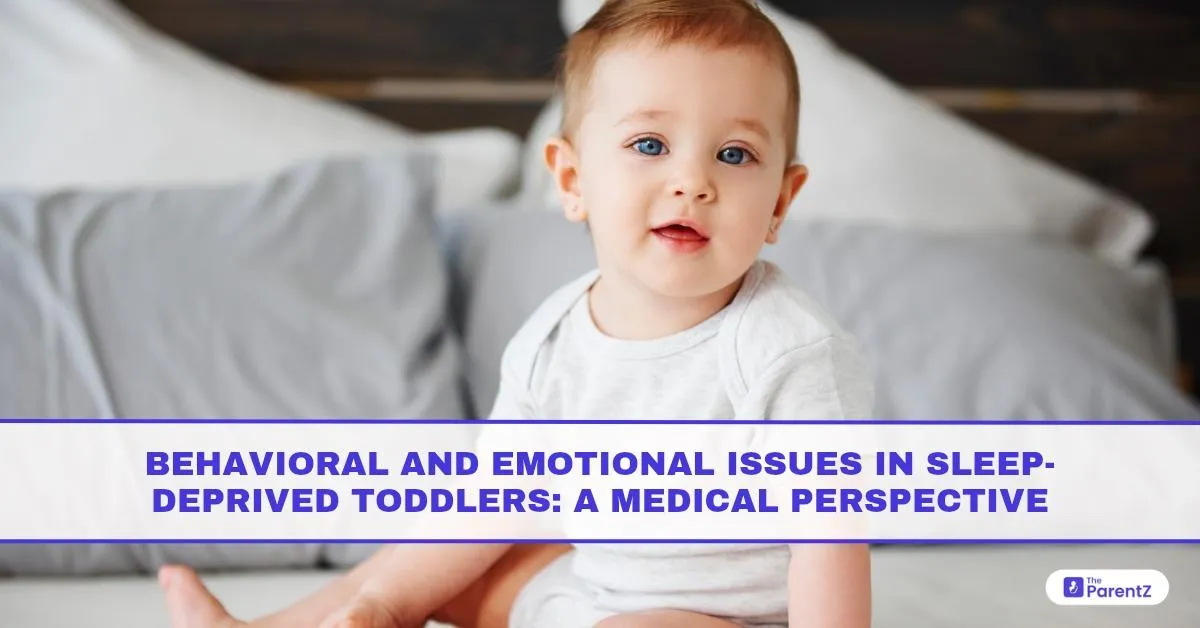If you’ve ever faced bedtime battles, midnight wake-ups, or a cranky toddler during the day, you’re not alone. Sleep deprivation is common in toddlers, but many parents don’t realize how deeply it can impact their child’s emotions, behavior, and overall development. A toddler who isn’t getting enough sleep is not just “grumpy”; they may struggle with emotional regulation, learning, and even physical health.
Why Sleep is So Important for Toddlers
Sleep is essential for everyone, but it’s especially critical during the toddler years (ages 1-3). At this stage, children’s brains are growing rapidly, forming new connections every day. Good sleep helps support this brain development, as well as physical growth, immune function, and emotional well-being.
Toddlers typically need 11 to 14 hours of sleep in a 24-hour period. This includes nighttime sleep and naps. When they don’t get enough rest, their bodies and brains can’t function at their best.
Behavioral and Emotional Issues Linked to Sleep Deprivation
Sleep-deprived toddlers may exhibit a wide range of emotional and behavioral challenges, including:
Frequent Tantrums
Toddlers naturally have big emotions, but a lack of sleep can make it harder for them to manage frustration or disappointment. This leads to more frequent, intense tantrums.
Increased Irritability and Mood Swings
A well-rested toddler is more likely to be calm and curious. A sleep-deprived one may be moody, clingy, or easily upset by small things.
Difficulty Paying Attention
Sleep is essential for attention and memory. Without it, toddlers may find it harder to focus on tasks, follow simple instructions, or learn new skills.
Hyperactivity
Surprisingly, some sleep-deprived toddlers seem more energetic, not less. They might appear “wired,” restless, or unable to sit still, which can be mistaken for ADHD.
Anxiety and Fearfulness
A tired toddler may feel more anxious, scared of separation, or more sensitive to their surroundings.
Aggressive Behaviors
Sleep deprivation can lower impulse control, leading to hitting, biting, or pushing.
Unhealthy Sleep Practices: What to Watch For
As parents, we may unknowingly contribute to our child’s sleep struggles. Here are some common unhealthy sleep practices that can make things worse:
Irregular Bedtimes
A toddler who sleeps at different times each night may struggle to establish a healthy sleep rhythm.
Overuse of Screens Before Bed
TVs, tablets, and phones stimulate the brain and suppress melatonin, a hormone that helps with sleep. Avoid screens at least an hour before bedtime.
Too Many Late Naps
Napping too late in the day can make it hard for toddlers to fall asleep at night.
Inconsistent Routines
A predictable bedtime routine helps toddlers feel safe and secure. Without it, they may resist sleep.
Excessive Stimulation Before Bed
Rough play, loud noises, or exciting activities too close to bedtime can make it harder for toddlers to wind down.
Healthy Sleep Habits: What Toddlers Need
The good news is that with the right strategies, most sleep issues can be improved. Here’s what healthy sleep habits look like for toddlers:
Consistent Bedtime and Wake Time
Try to put your toddler to bed at the same time every night, even on weekends. Consistency helps regulate their internal clock.
A Calming Bedtime Routine
Create a relaxing routine that signals it’s time to sleep, like a warm bath, quiet reading, and cuddles.
Limit Screens and Stimulation
Turn off screens at least an hour before bedtime, and create a calm, quiet environment.
Encourage Physical Activity During the Day
Plenty of active play in the daytime helps toddlers burn off energy and sleep better at night.
Watch Nap Timing
Ensure naps don’t happen too close to bedtime. Most toddlers drop their second nap by 18 months and move to one nap per day.
Comfort Without Dependency
It’s okay to comfort your toddler at night, but try to avoid habits that create dependence, like rocking them to sleep every time. Gradually encourage them to self-soothe.
When to Worry: Red Flags to Watch For
Sometimes, sleep problems can signal deeper issues. Talk to your pediatrician if you notice:
Your toddler snores loudly, gasps for air, or stops breathing during sleep.
They are extremely hyperactive, aggressive, or unusually fearful.
They seem sleepy all day long or are struggling with growth and development milestones.
Sleep struggles persist despite healthy sleep habits.
Conclusion
Sleep is not just rest; it’s an essential building block for your toddler’s brain, emotions, and behavior. By creating healthy sleep routines and understanding how sleep affects your child, you’re setting them up for a happier, more balanced life.
Every parent faces sleep challenges, but with patience and consistency, you can help your toddler thrive emotionally, behaviorally, and physically. If you’re ever unsure, reach out to your child’s doctor; support is available, and you don’t have to navigate these challenges alone.





Be the first one to comment on this story.